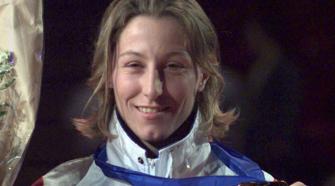- HOME
- NEWS & INSIGHTS
- THOUGHT LEADERSHIP
- behind-scenes-withformer-british-judo-head-coach-kate-howey
Image

You often hear athletes mention ‘the Team behind the Team’ in post-competition interviews as they give thanks for the wider support they receive on a day-to-day basis.
This may typically refer to coaches, physiotherapists, strength and conditioning experts, performance analysts, family, friends….the list goes on and varies from athlete to athlete. So what does it take for Team Leaders and Chef de Missions to bring the whole operation together from top to bottom for a major Games?
Our feature series, entitled ‘Behind the Scenes With’, sees experienced support staff offering insight into the processes involved in preparing for a major Games. Current and previous Team Leaders and Chef de Missions will share their experiences to help better understand their roles, the detailed planning in the build-up to a Games, and the key considerations during competition-time.
This time in the hotseat is Kate Howey!
Kate is the only British woman to have won two Olympic judo medals after bagging bronze at Barcelona 1992 and silver in Sydney eight years later. After enjoying a decorated career on the mat, Kate pivoted her attention to coaching, and having guided Gemma Gibbons to a scintillating silver medal at London 2012, clocked up 17 years as Head Coach of British Judo before her recent departure.
Here, Kate reflects on her experiences in a special blog written for Team England Futures....
“I think for the Commonwealth Games this year, it's slightly different because it's in Birmingham and it's a home Games. They don't come around too often. So the preparation is full steam ahead now, particularly after the previous restrictions due to COVID, and everybody is gearing up for it. It's one of those ones where everybody wants to put their best performance in on that day, so we've got to take that into account….as well as taking into account the other part of the performance programme where we've got a World Championships and a European Championships as well.
“So it's trying to get the balance right between all three competitions in the space of about three or four months - which is quite difficult. It might not be the physical preparation that changes, it might possibly be the mental side that changes. That's because the pressure that comes at a home Games is different to the pressure when you're completely in a bubble outside your country. So the mental aspect will change in terms of trying to get them used to performing and focusing on themselves rather than what's happening around them.
“It's immensely difficult preparing athletes for this schedule - especially in judo. We've got the Commonwealth Games one week and then the World Championships in the second week of August. So, for some of the lightweights, there might only be four or five days between the two competitions. It will be a bit of a juggling act in terms of trying to get them fit, healthy and recovered to then fight again four or five days afterwards. That's the tricky bit – the recovery strategy has to be spot on, basically.
“The team behind the actual athlete is huge, and it's the athlete who is the tip of the iceberg, but the team is below water trying to keep that athlete in tip-top condition. So, there are so many different facets – you've got the coach, the nutritionist, the physio, the strength and conditioning, so you've got so many different things working together to make that one performance on that day. So, the team behind that athlete is invaluable. The impact a coach can have is very dependent on the athlete.
“For those who don't know anything about judo, the coach is only six or seven metres away from the athlete while they're fighting, and they can shout at them while they fight. So a coach, if the athlete's listening at the time, can change a fight – meaning they can be quite valuable. But sometimes it can be a 50/50 because sometimes, an athlete may not rely too heavily on their coach, but another athlete might.
“The challenge with the Commonwealth Games is that it's a multi-sport event. So typically, with judo, it's on its own wherever it is in the world. To come into a Commonwealth Games, the challenge is to keep your athletes grounded and not get carried away with the moment because there are so many other athletes - rather than focusing on what they need to do on that day.
“That's the biggest challenge at a multi-sport event – but I think any sort of challenge can happen. There could be a dodgy referee, or somebody could hurt themselves, or someone may need to drop a little bit of weight, but I think what you have to do is stay calm in the situation and find out what the root of the problem is – and then address it that way.”
Commonwealth Games England has appointed SportsAid to lead on the development, management and operational delivery of Team England Futures at the Birmingham 2022 Commonwealth Games. The programme, supported by Sport England, will reinforce the importance of the Commonwealth Games, particularly one hosted on home soil, as a developmental opportunity within the talent and performance pathway!

